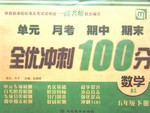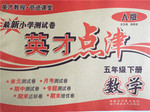题目内容
Obama’s success in presidential election proves that the color of one’s skin shouldn’t be a ________ to success.
- A.barrier
- B.behavior
- C.battle
- D.bunch

 全优冲刺100分系列答案
全优冲刺100分系列答案 英才点津系列答案
英才点津系列答案If Barack Obama's wife and kids thought they'd be getting his undivided attention during their long-awaited summer holiday, perhaps they should think again.
The US President kicked off his vacation by revealing that, in addition to endless games of tennis and golf, he plans to spend the week ploughing through five books, weighing in at an astonishing 2,300 pages. His summer reading list, unveiled(透露) by the White House, contains two heavyweight works of non–fiction and three novels.
On top of the president’s table is Hot, Flat and Crowded, by New York Times columnist, Thomas Friedman. Subtitled "why we need a green revolution", it makes a leftish(左倾的) call to arms regarding the future of the planet.
Mr Obama's second choice is historian David McCullough's biography of John Adams, the often under-rated second US president, who was the subject of an award-winning HBO docu-drama(纪实剧)last year.
The novels include two crime thrillers: Richard Price's Lush Life, and The Way Home, a novel by George Pelecanos set in Washington, DC – which, much like Obama's best-selling autobiography(自传), explores the relationship between a father and his son.
Completing the set is the novel Plainsong, by a little-known writer called Kent Haruf. Set in a small town on the Colorado plains, its existence on the reading list may reassure voters that Middle America has not been ignored by their commander-in-chief.
Publishers are keeping an eye on whether the famous "Obama bounce" – which has helped sales at the first family's favourite clothes stores, such as J Crew – will continue to apply to their troubled industry. The President's endorsement(认可) is said to have lifted sales of Joseph O'Neill's novel Netherland about cricket in Holland and New York last year.
Given that President Obama has already spent a portion of his week so far playing golf, beating Michelle at tennis, and visiting friends, questions will inevitably(不可避免地) be asked about his ability to put any dent(挫伤) at all in the ambitious reading list.
To finish all five books, he would have to manage more than 300 pages every day – quite an "ask" when a small portion of his time must also be spent running the country.
57. What’s the function of the first paragraph?
| A. To give an example. | B. To introduce a topic. |
| C. To describe a hope. | D. To offer an argument. |
| A. Some people doubted if the president could finish his books. |
| B. The Way Home is a book which explores the relationship between a father and his son. |
| C. Lush life, set in Washington, is a novel written by Richard Price. |
| D. Thanks to Obama, sales of Netherland have been lifted. |
| A. John Adams. | B. Netherland. |
| C. Hot, Flat and Crowded. | D. Lush Life. |
| A. Obama’s Hobbies | B. Obama’s Holiday Plan |
| C. Obama’s Holiday Life | D. Obama’s Holiday Book List |
Despite being tall, Michelle Obama is much smaller than she appears on television. And she seemed a little short by her surroundings in the great hall of Christchurch College as she spoke quietly without a microphone because of a technical mistake. Her audience were 40 young girls from a London state school where 50 languages are spoken.
“I remember how well-meaning but misguided people questioned whether someone with my background could succeed at an elite (精英) university,” she said. “When I was accepted, I had all kinds of worries and doubts. I wouldn’t be as well prepared as students from privileged families and I wouldn’t fit in. But you are just as capable and have just as much to offer as anyone else.”
This was Mrs. Obama’s only solo outing during the state visit and part two of an unusual relationship which she has struck up with Anderson College in Islington. Two years ago on her first visit to the UK she visited the school.
Yesterday she returned to meet the pupils but this time at Christchurch College where they were taking part in an open day run to improve Oxford’s still poor record on diversifying student intake.
Mrs. Obama was asked why she married her husband, what it was like being First Lady and when there would be a female President in the White House. Her message—which she repeated time and again—was work hard, have self-belief, and don’t be afraid to fail. It was very un-British, but rather effective. Afterwards there were hugs for everyone and a photo with her.
And watching the group of multicultural young Britons surround her among the splendor of the college building one thought stood out. Had Mrs. Obama been born in Britain, she would almost certainly not have made it to Oxford as she did to Harvard. But now—thanks in part to her—some of these children just might.
【小题1】According to the passage, Michelle Obama ____________.
| A.graduated from Anderson College |
| B.paid her first visit to the UK this time |
| C.was confident when she entered the college |
| D.came from a family without good background |
| A.were all from the United States |
| B.were students of Oxford University |
| C.came from different cultural backgrounds |
| D.stayed with Mrs. Obama because of hard work |
| A.working hard | B.believing in yourself |
| C.good opportunities | D.facing failure without fear |
| A.The British pupils couldn’t understand her message. |
| B.Her message reached the British pupils successfully. |
| C.Repetition is not the British way to give a message. |
| D.All effective messages are not conveyed in British. |